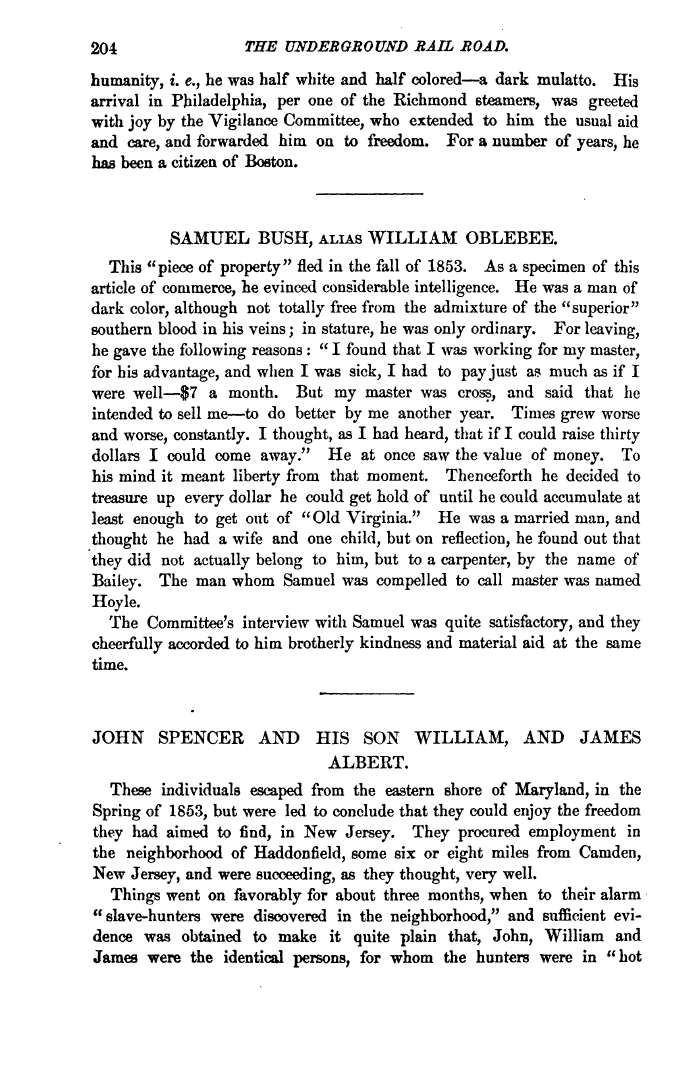 |
||||
 |
||||
| 204 THE UNDERGROUND RAIL ROAD. humanity, i. e., he was half white and half colored—a dark mulatto. His arrival in Philadelphia, per one of the Richmond steamers, was greeted with joy by the Vigilance Committee, who extended to him the usual aid and care, and forwarded him. on to freedom. For a number of years, he has been a citizen of Boston. SAMUEL BUSH, ALIAS WILLIAM OBLEBEE. This "piece of property" fled in the fall of 1853. As a specimen of this article of commerce, lie evinced considerable intelligence. He was a man of dark color, although not totally free from the admixture of the "superior" southern blood in his veins; in stature, he was only ordinary. For leaving, he gave the following reasons : " I found that I was working for my master, for his advantage, and when I was sick, I had to pay just as much as if I were well—$7 a mouth. But my master was cross, and said that he intended to sell me—to do better by me another year. Times grew worse and worse, constantly. I thought, as I had heard, that if I could raise thirty dollars I could come away." He at once saw the value of money. To his mind it meant liberty from that moment. Thenceforth he decided to treasure up every dollar he could get hold of until he could accumulate at least enough to get out of "Old Virginia." He was a married man, and thought he had a wife and one child, but on reflection, he found out that they did not actually belong to him, but to a carpenter, by the name of Bailey. The man whom Samuel was compelled to call master was named Hoyle. The Committee's interview with Samuel was quite satisfactory, and they cheerfully accorded to him brotherly kindness and material aid at the same time. JOHN SPENCER AND HIS SON WILLIAM, AND JAMES ALBERT. These individuals escaped from the eastern shore of Maryland, in the Spring of 1853, but were led to conclude that they could enjoy the freedom they had aimed to find, in New Jersey. They procured employment in the neighborhood of Haddonfield, some six or eight miles from Camden, New Jersey, and were succeeding, as they thought, very well. Things went on favorably for about three months, when to their alarm "slave-hunters were discovered in the neighborhood," and sufficient evidence was obtained to make it quite plain that, John, William and James were the identical persons, for whom the hunters were in "Lot |